"They only demolish homes of defenseless and weak," despite UN intervention, demolition at Khori Gaon continues

The Supreme Court ordered the demolition of a settlement in Khori Gaon in Faridabad, Haryana on June 7 and given the municipal corporations until July 19 to finish the eviction, which was extended to four more weeks on July 23. To date, the village of Khori in Faridabad has seen nearly a thousand homes demolished. The photo essay captures the plight the residents of Khori Goan, who have been rendered homeless and have no where to go.
Shadab Farooq | TwoCircles.net
The sound of drums and dhols fills a five-star hotel adjacent to the Khori Village, where ten thousand buildings are being demolished, as a wedding function takes place. The cries and screams for help of the villagers were being drowned out by these deafening noises.
[caption id="attachment_443180" align="aligncenter" width="2560"] The homes of residents were razed to the ground. | Photo by Shadab Farooq[/caption]
The homes of residents were razed to the ground. | Photo by Shadab Farooq[/caption]
Meanwhile, over 50 villagers were arrested and brought to the local police station after they began resisting the demolition of their homes.
[caption id="attachment_443182" align="aligncenter" width="2560"]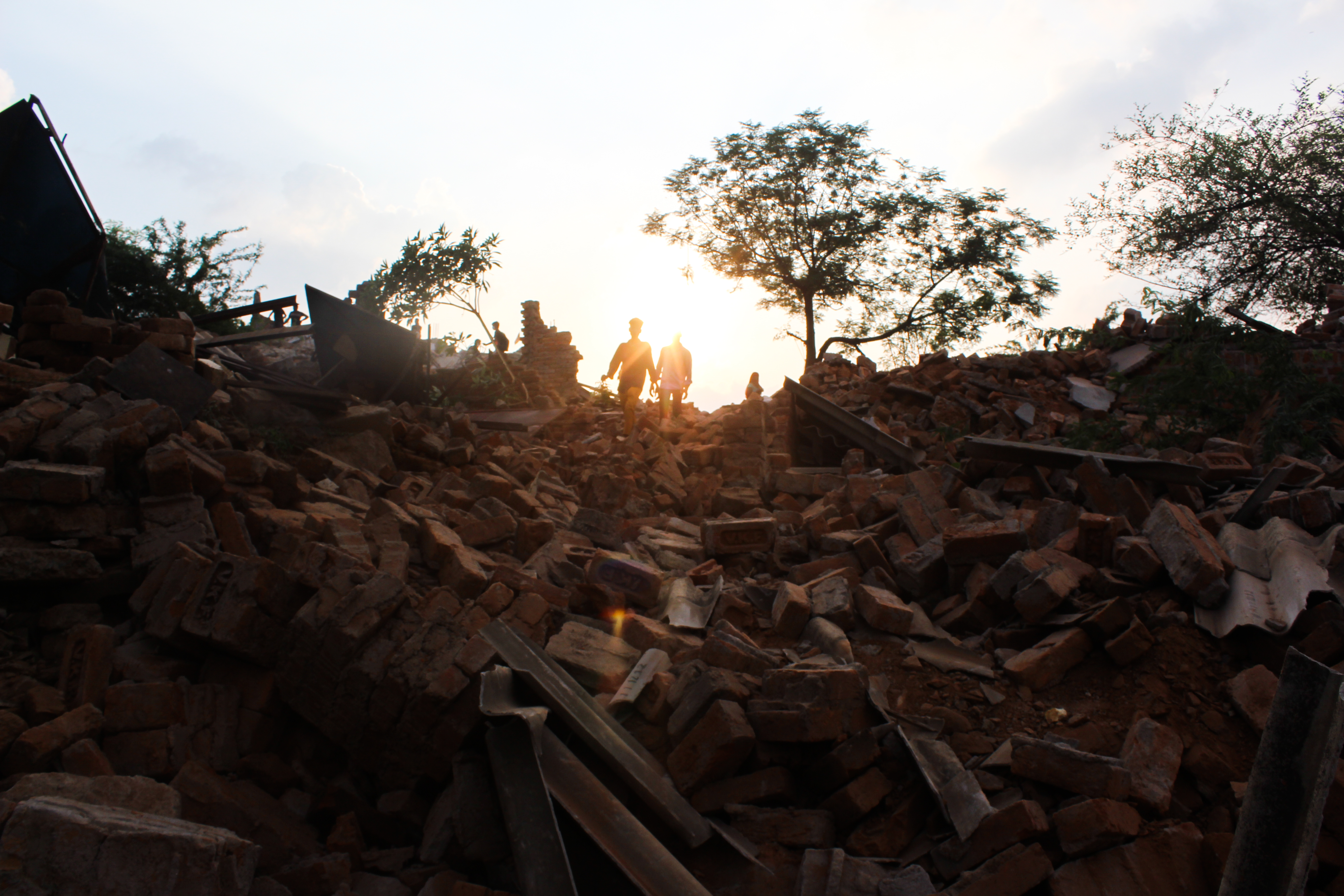 Children walking on the debris of a demolished house. | Photo by Shadab Farooq[/caption]
Children walking on the debris of a demolished house. | Photo by Shadab Farooq[/caption]
On the second day of the demolition (July 15), many local journalists were denied access to the site and were detained on the hotel's top floor, the same hotel where the big wedding was being held.
Ironically, the same hotel, several farmhouses, an ashram and a wine shop are all located on the same Aravalli land where the Supreme Court has ordered the Municipal Corporation of Faridabad that the encroachment to be removed stating that the "land grabbers cannot hide behind the rule of law and claim to be acting fairly”.
[caption id="attachment_443183" align="aligncenter" width="2560"]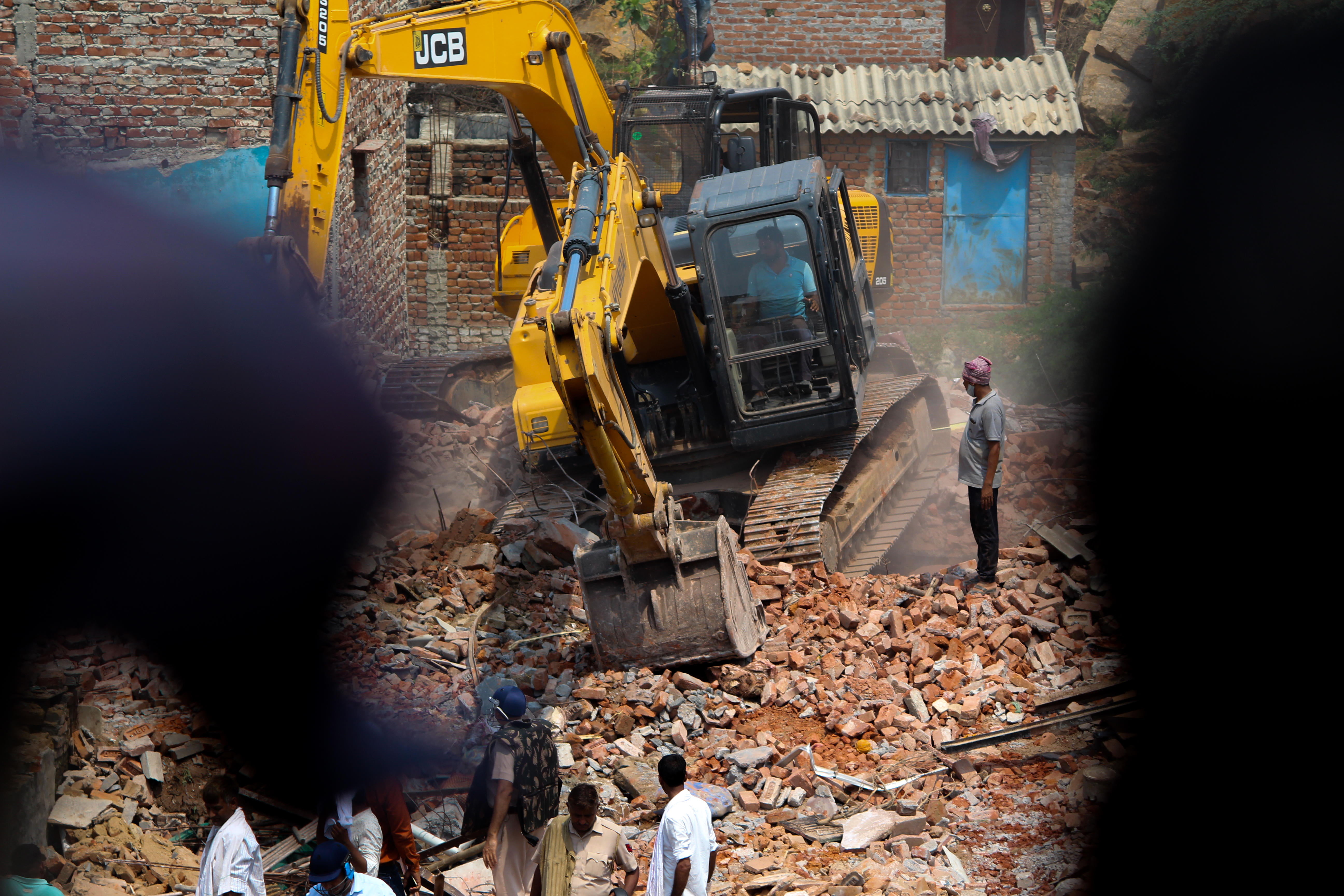 A close view of demolition drive at Khori Village, Faridabad. | Photo by Shadab Farooq[/caption]
A close view of demolition drive at Khori Village, Faridabad. | Photo by Shadab Farooq[/caption]
When his home was demolished, Priyanshu Kanojia, 18, an undergraduate was writing his paper in Delhi. "When I returned, my house had been demolished." Priyanshu remarked, anguished and teary-eyed, "If they care about the law, tell them to start by demolishing the hotels and ashrams that are in the same area. But no, they will only demolish the homes of the most defenceless and weakest," he said.
[caption id="attachment_443184" align="aligncenter" width="1600"]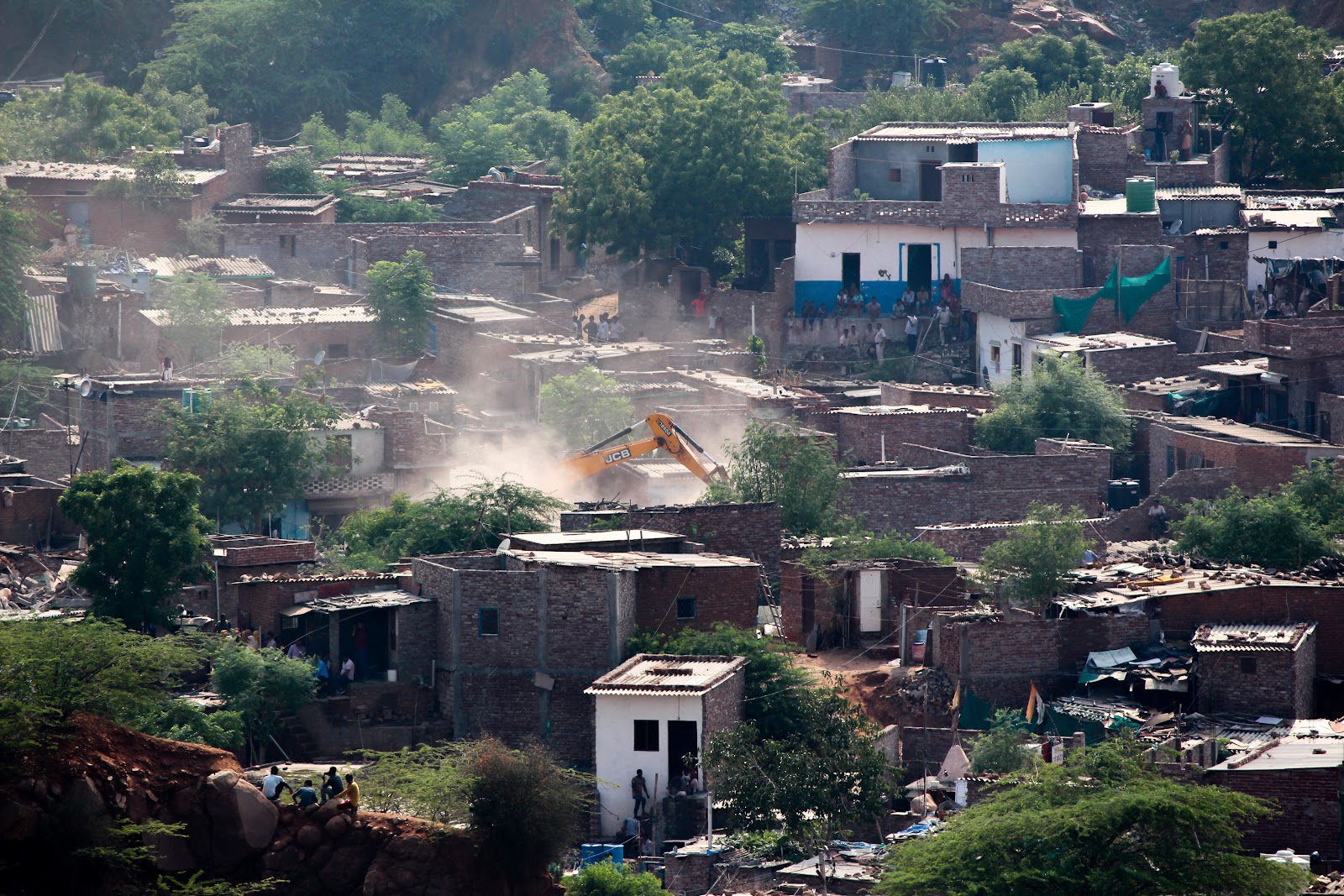 A bulldozer demolishing the houses. | Photo by Shadab Farooq[/caption]
A bulldozer demolishing the houses. | Photo by Shadab Farooq[/caption]
Locals of Khori village have been fighting the decision, which will make them homeless amid the Covid-19 pandemic. They said that they have lived in the area for decades. Khori Village, with a population of over 1 lakh people, was primarily made up of daily wage employees and labourers, with Muslims and Christians making up the majority of the population.
[caption id="attachment_443185" align="aligncenter" width="2560"] Versha Kumari, 23, stands on the debris of her home. | Photo by Shadab Farooq[/caption]
Versha Kumari, 23, stands on the debris of her home. | Photo by Shadab Farooq[/caption]
When her home was being demolished, Versha Kumari, 23, tried begging with the police officials. "But all of my efforts were in vain," she said. "I will no longer volunteer for civil defence," Versha, an undergraduate and civil defence volunteer, said. "I pleaded with everyone (even the civil defence volunteers) but they continued demolishing. All of my books, my hard work today is under the debris."
[caption id="attachment_443186" align="aligncenter" width="2560"]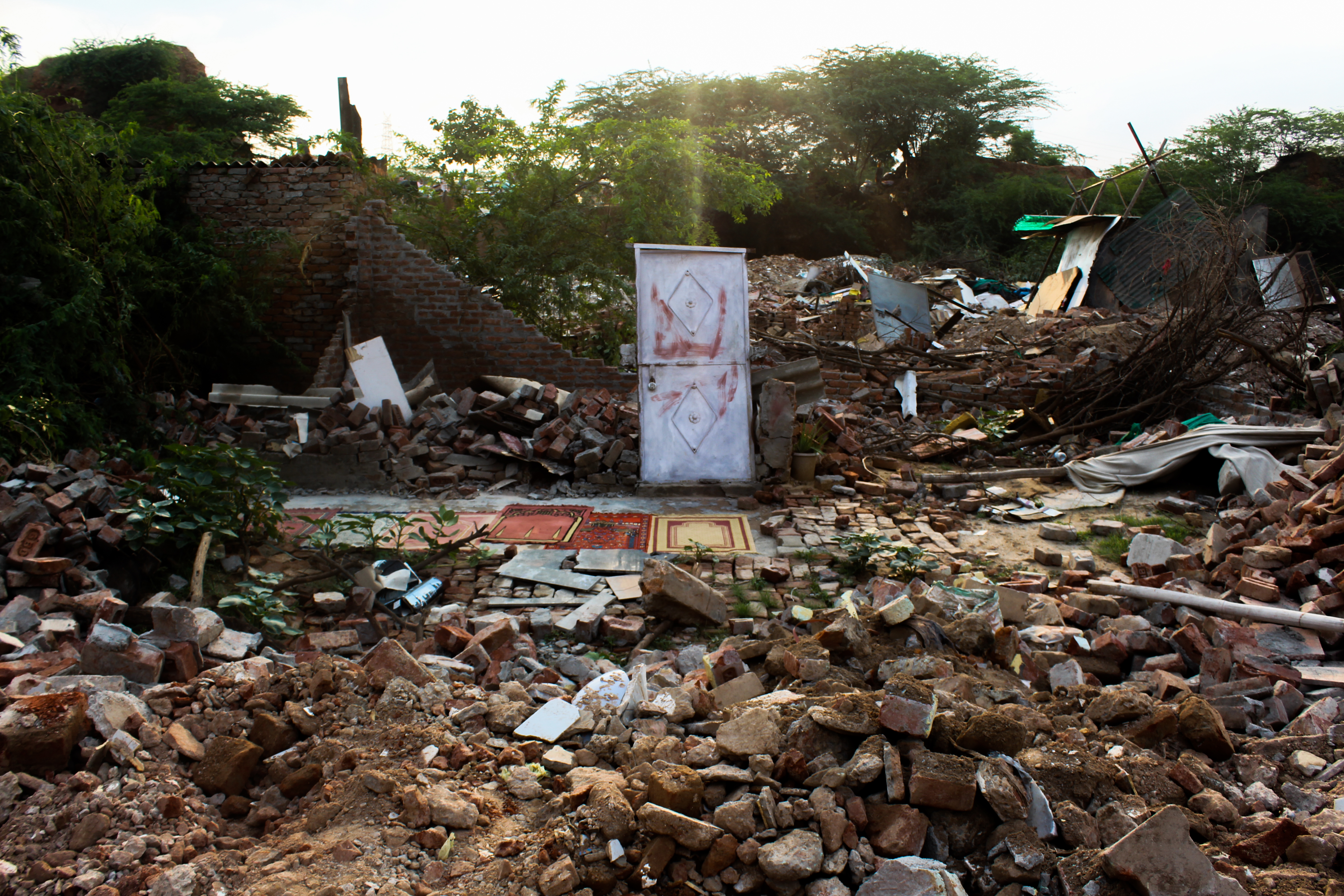 The remains of a mosque that was demolished in the Khori Village. | Photo by Shadab Farooq[/caption]
The remains of a mosque that was demolished in the Khori Village. | Photo by Shadab Farooq[/caption]
Even though the residents were cut off from electricity and water weeks before the demolition, they continued to live without these necessities. According to Mohammed Toufeeq, 41, "The authorities attempted all they could to get us to leave, including denying us water and electricity. Now that everything has been razed, we shall continue to live here, with or without the roof."
[caption id="attachment_443187" align="aligncenter" width="2560"] Mohd. Toufeeq (centre) with Mohd. Shahzad (left) and Mohd. Shaukeen (right), after the demolition of their homes. | Photo by Shadab Farooq[/caption]
Mohd. Toufeeq (centre) with Mohd. Shahzad (left) and Mohd. Shaukeen (right), after the demolition of their homes. | Photo by Shadab Farooq[/caption]
Many residents claim to have purchased the land and said "they are not lawbreakers." The majority of them invested their whole decade's earnings in the construction of these homes, but everything was destroyed in a matter of hours.
[caption id="attachment_443188" align="aligncenter" width="2560"]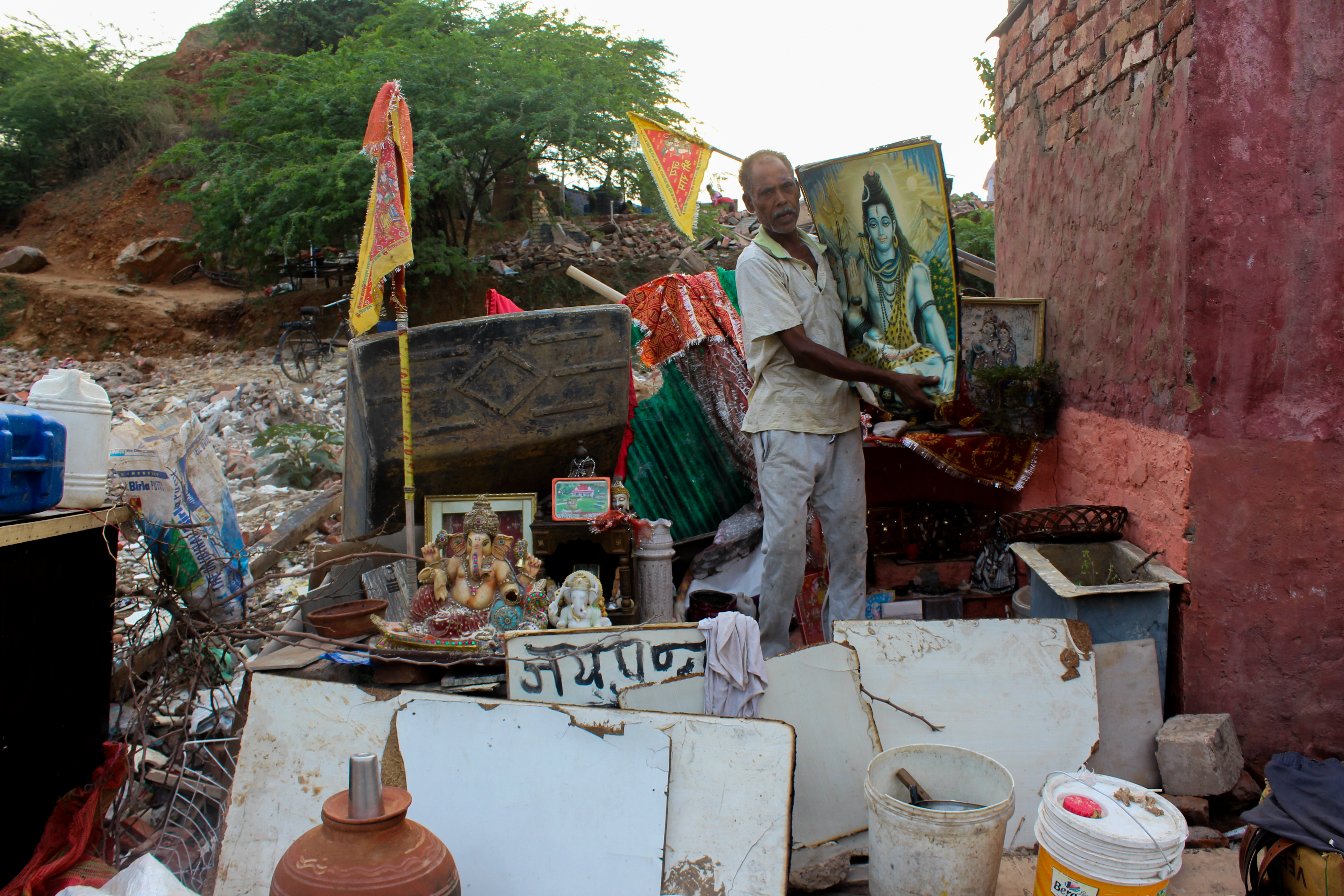 Madan Lal Malhotra, 55, is seen arranging the temple belongings before demolition. | Photo by Shadab Farooq[/caption]
Madan Lal Malhotra, 55, is seen arranging the temple belongings before demolition. | Photo by Shadab Farooq[/caption]
"I put all of my efforts into making this house," Madhukant, 42, a daily wage worker, said. "I even took loans from individuals so that I could provide a better life for my family." "Where will I take my family now?", Madhukant wonders. “It's preferable if I poison myself and my family and put an end to everything”.
[caption id="attachment_443189" align="aligncenter" width="2560"]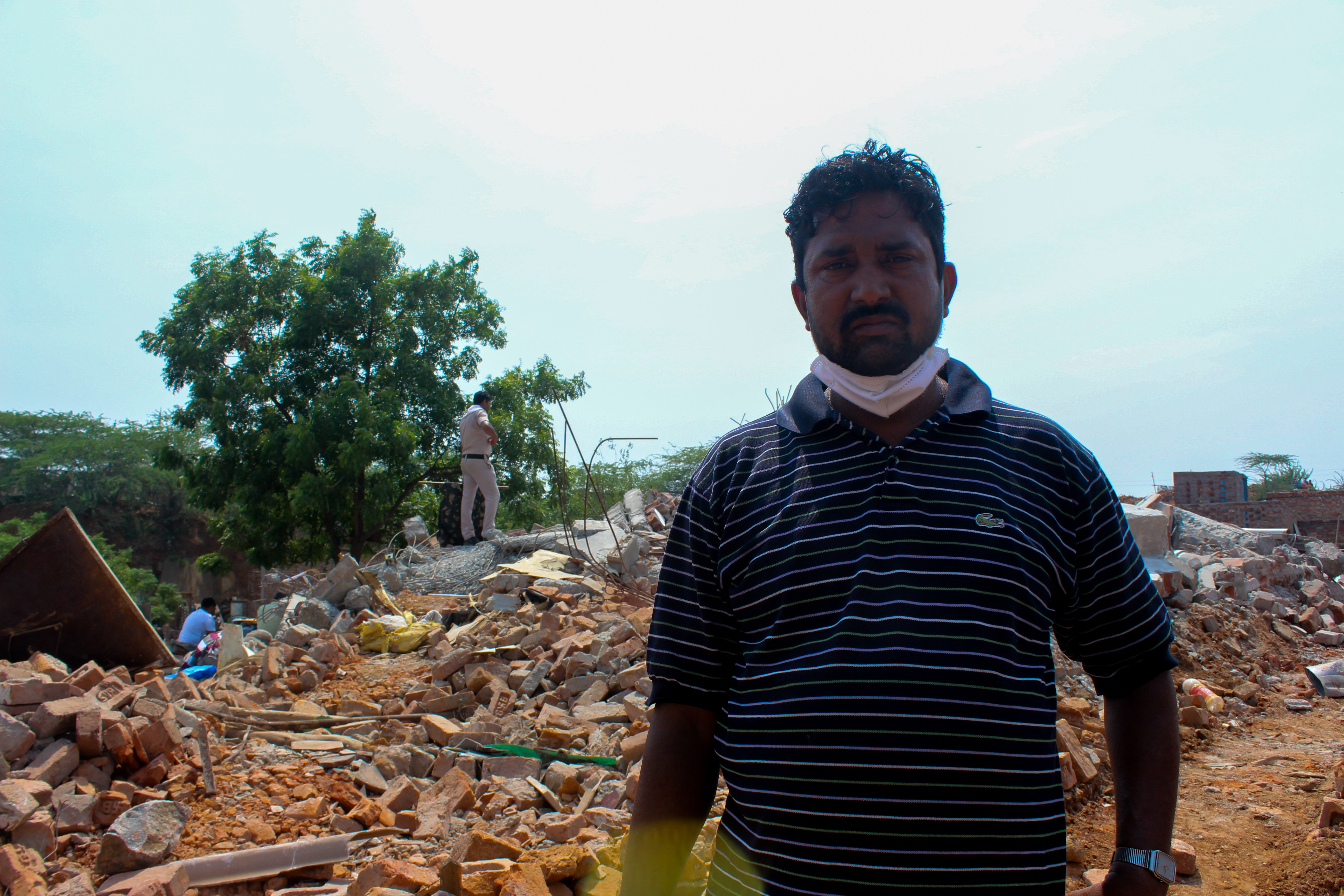 Madhukant, 42, stands on the debris of his home. | Photo by Shadab Farooq[/caption]
Madhukant, 42, stands on the debris of his home. | Photo by Shadab Farooq[/caption]
On the other hand, United Nations (UN) experts urged Indian authorities on July 16 to suspend evictions of about 1 lakh people from Khori village in Haryana during the monsoon season. They urged India to "immediately reconsider" its plans to demolish the Khori hamlet and "consider regularising the settlement" so that no residents be displaced.
[caption id="attachment_443190" align="aligncenter" width="2560"] The remains of a house that was demolished on July 15. | Photo by Shadab Farooq[/caption]
The remains of a house that was demolished on July 15. | Photo by Shadab Farooq[/caption]
The displacement drive began on July 14 and has been going on since then. To date, the village of Khori in Faridabad has seen nearly a thousand homes demolished. As reported by Newsclick, "Those who have been evicted are now forced to sleep outside in the open or under plastic sheets. Many others have reported illnesses as a result of a lack of food or water."
[caption id="attachment_443192" align="aligncenter" width="2560"]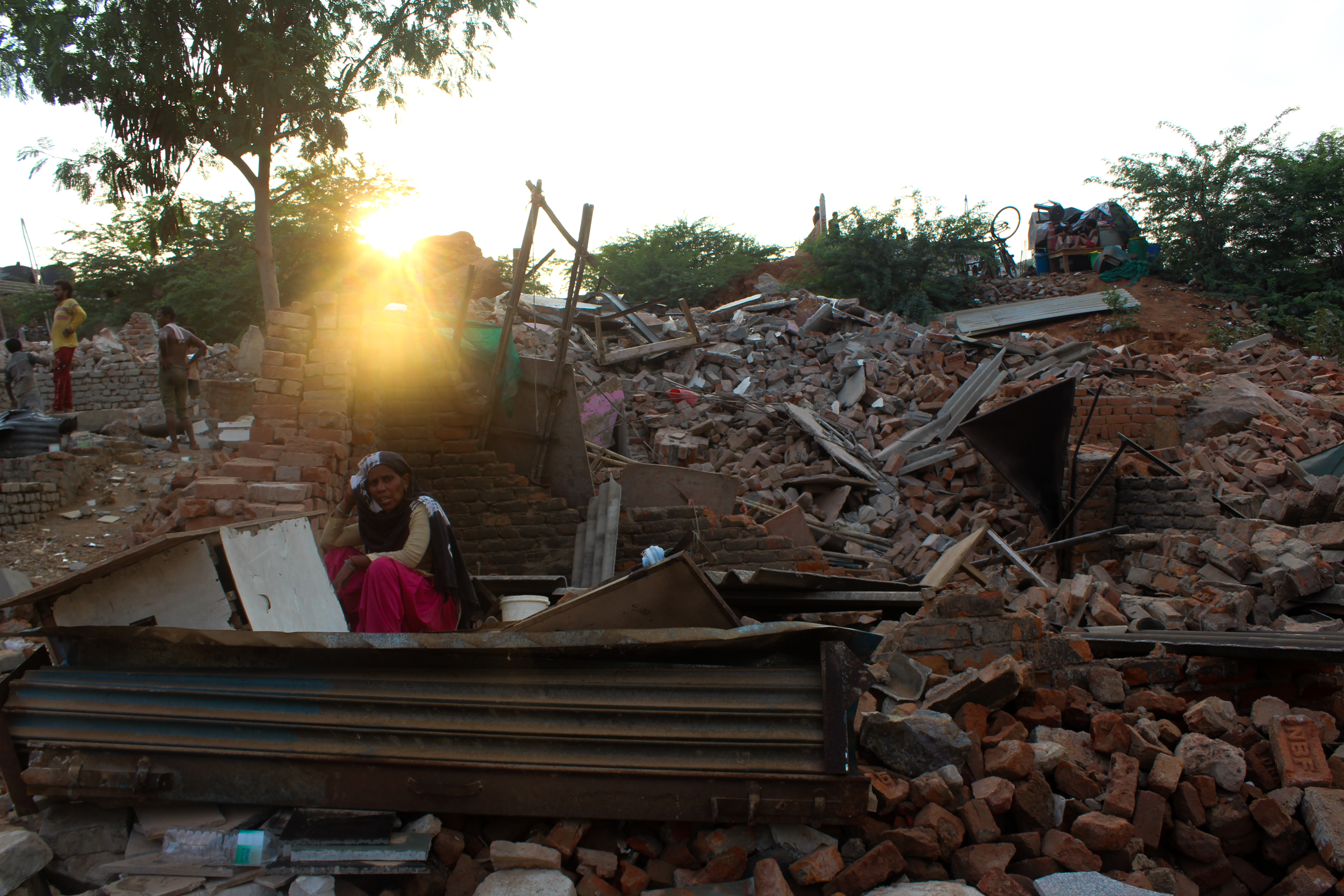 A woman sitting at the site of her demolished home. | Photo by Shadab Farooq[/caption]
A woman sitting at the site of her demolished home. | Photo by Shadab Farooq[/caption]
